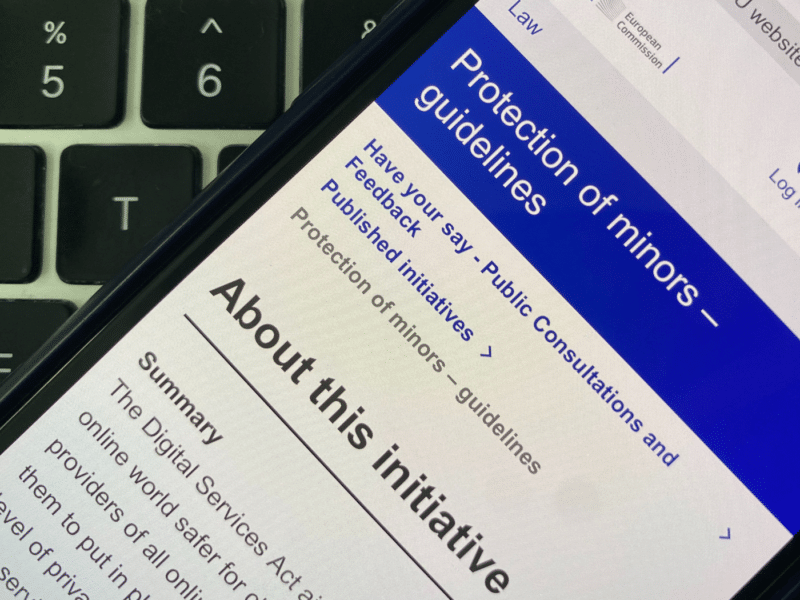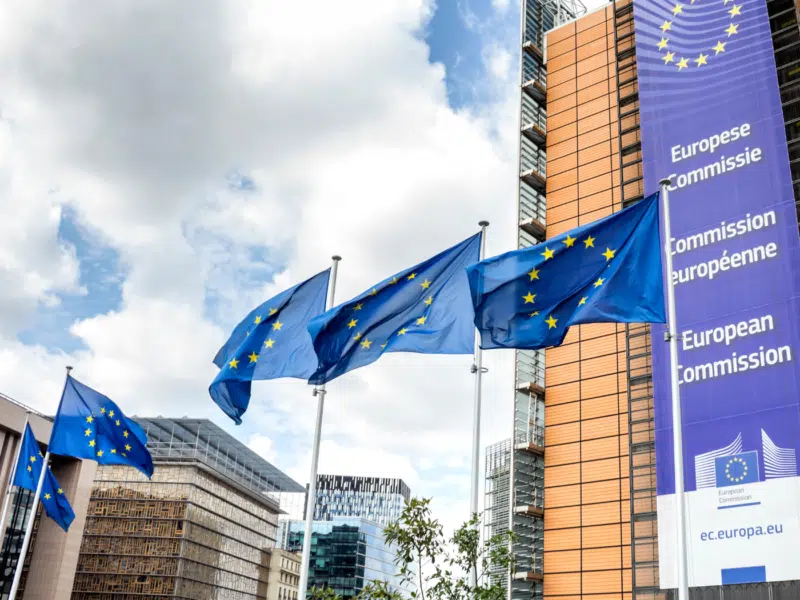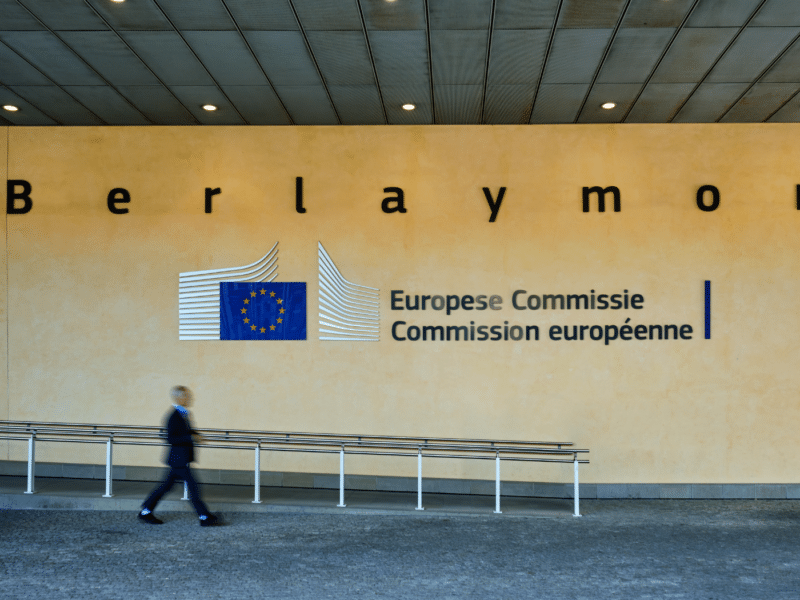A High Level of Privacy, Safety & Security for Minors
Experts, policy-makers and civil society organisations gathered at the European Parliament outlined the regulatory tools, frameworks and guidance needed to ensure that the DSA delivers on its promises and makes the digital environment safe and empowering for children, by design and default.
MEP Catharina Rinzema, Vice-Chair of the Child Rights Intergroup, stressed how the digital environment is not designed for children and as business imperatives prevail, robust and effectively enforced rules are needed to change this. Matheo, aged 12, provided a practical testimony of this issue, explaining how easy it is to get obsessed with gaming because “all of the notifications just try to take you back”, and that “some of my friends don’t want to play because they prefer to stay at their home and play video games online”. 5Rights Executive Director Leanda Barrington-Leach echoed such concerns, explaining that “the DSA has a huge transformative potential for children, but to fully deliver on this promises it requires proper implementation and robust enforcement, based on existing laws, standards and best practice.”
The event thus welcomed the 5Rights baseline guidance, which draws from international instruments and best practices to outline key principles, provisions, standards and other guidance that can help enforcers and companies comply with the DSA and cater for children’s rights – from the UN Convention on the Rights of the Child and its General comment No. 25, to the UK and California Age-Appropriate Design codes or the voluntary codes on child online safety adopted in France, Ireland, Sweden and the Netherlands.
The digital world has transformed childhood, bringing with it new opportunities and risks. One in three internet users is a child, and technology mediates every aspect of their lives and development. “The importance of succeeding with the DSA as a key development in a global context cannot be understated” explained Leanda Barrington-Leach to stress the high stakes that the baseline guidance is seeking to address. “GDPR changed how people saw privacy globally, laying the basis for new tools like the Age Appropriate Design Code to look at children’s data and how protecting it can fulfil their rights online. With the DSA, the EU has a chance to ensure the digital world is re-designed for children – and not just corporate profits – to thrive.”, she added.
Implemented thoughtfully and enforced robustly, the DSA will lay the foundations for the development of technology that will serve children and society for generations to come, upon which we will build the digital world that children and young people deserve. Indeed, prioritising children’s rights in DSA enforcement is not only an opportunity for the EU to show that the regulation works in an election year, but can also serve the global strategic interest of the Union. Indeed, whether or not the DSA delivers for children – and how quickly – will be a critical test of the value of the new law and the EU’s claim to global leadership in digital regulation.
The European Commission has declared that implementing and enforcing the DSA for children is a priority. Prioritising children is a moral imperative as children are systematically ignored and exposed to risk and harm due to system design prioritising reach and engagement over privacy and safety. Prioritising enforcement for children is also smart, and not only because of the political capital involved in delivering on what can be a priority for a very high proportion of voters, but also because enforcers can harness a uniquely comprehensive legal and regulatory framework for children’s rights.
The EU can – and must – act fast. By swiftly encoding clear guidelines for companies based on existing laws and best practices for children, the EU can prove it can move fast and mend things – a welcome outcome for all.





